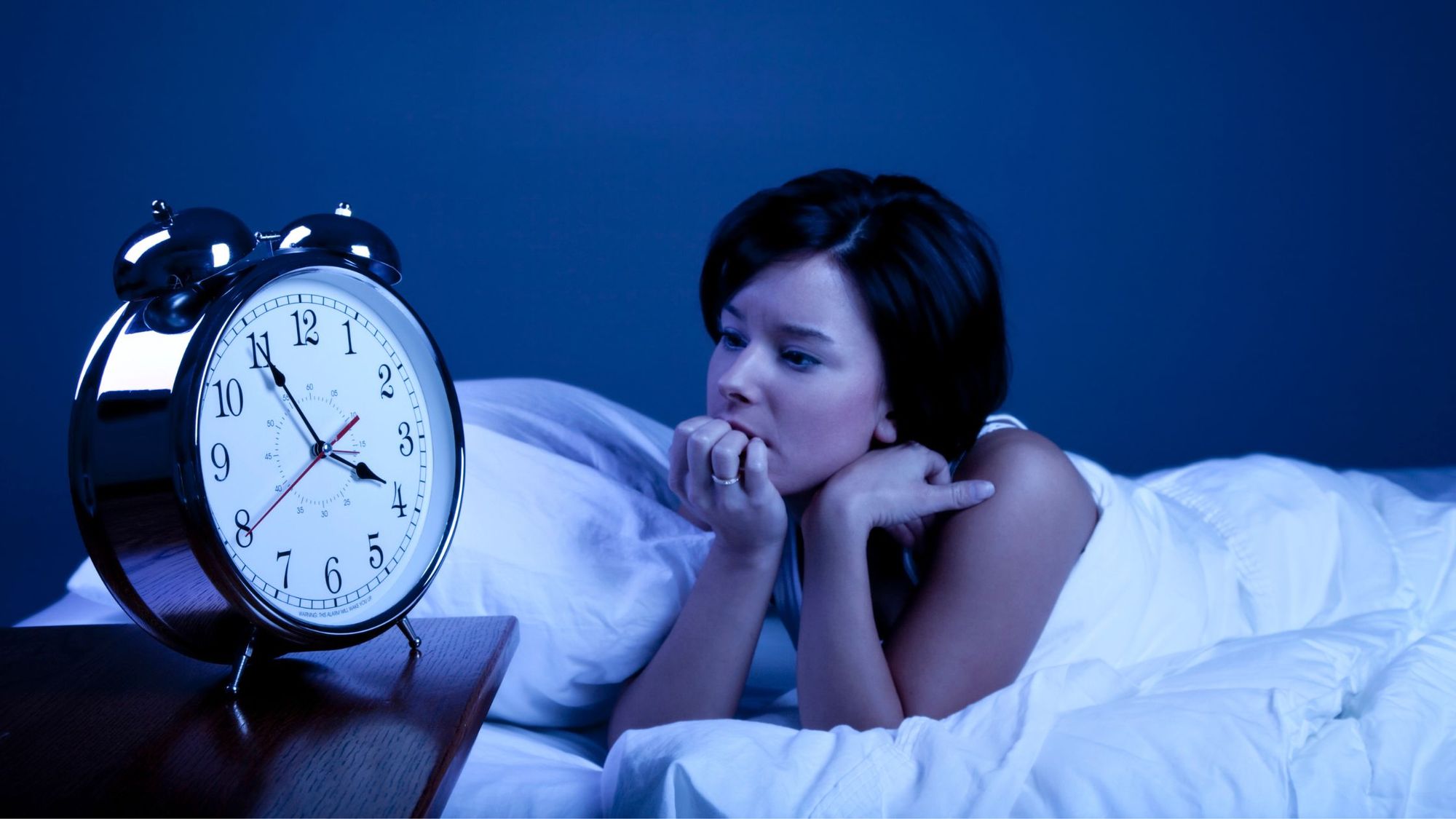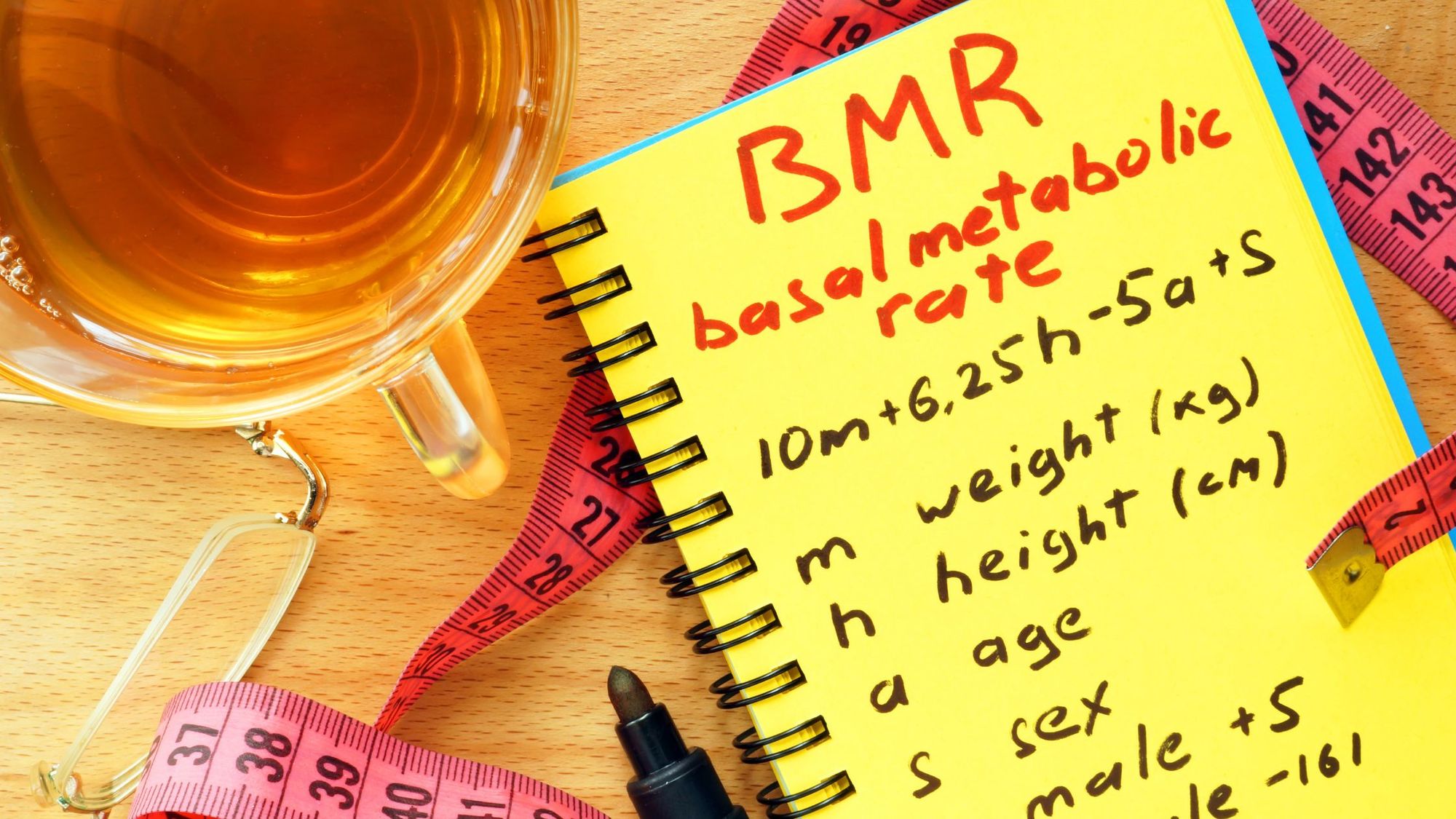
If you have bad (or strange) sleep habits and also struggle with your weight, you might be wondering how weight gain and sleep habits are interconnected. Standard sleeping guidelines for adults highly recommend that you get 7 to 9 hours of sleep per night. You spend ⅓ of your life asleep, and sleep is crucial because it’s a state where your body is at rest and in recovery mode. A lot of biological processes happen in sleep, such as your body repairing cells, getting rid of toxic waste, restoring energy, and releasing molecules like hormones and proteins. All of these processes have an impact on your metabolism, which is responsible for burning fats and calories throughout the day. For this reason, your weight and sleep are inextricably linked.
However, in this fast-paced world, many people are sleep deprived due to a variety of reasons, such as a sleep disorder like insomnia or short sleeper syndrome, a shift work lifestyle, or other lifestyle habits.
On the other hand, there are also those people who have a lot of freedom with their schedules, so they tend to oversleep or sleep too much. Some individuals also have a genetically late chronotype or are natural night owls, so they have odd sleeping hours due to their body’s intrinsic circadian rhythm, but they still get sufficient hours of sleep.
So, how are weight gain and sleep habits connected? How do different sleeping schedules impact weight loss or one’s ability to maintain a healthy weight?
It’s possible that your disordered sleep habits are causing hormonal imbalances that impact your metabolism and cause weight gain. It’s also possible that the simple act of staying up late increases the chances that you’ll indulge in late-night snacking habits or develop a condition called ‘Night Eating Syndrome’.
Healthy sleep habits are crucial for optimal wellness, not just because weight gain and sleep are often tied, but also because poor sleep can be tied to mood disorders as well as many other health issues.

Not Sleeping Enough: The Effect of Sleep on Weight Loss Patterns
If you’re on a fitness journey or desire to maintain your healthy physique, it’s important to understand how sleep affects your body. Find out more below and discover what is the effect of sleep on weight loss.
Being short on sleep or having poor sleep duration has an adverse impact on weight because it makes the body a prime candidate for weight gain. People who lack sleep tend to make poor food choices and skip exercise because they feel tired with no energy. Here are scientific explanations of the effect of sleep on weight loss, and how weight gain and sleep quality can often be linked:

Poor sleep results in a poor metabolic rate
One particular research study showed that sleep deprivation has a significant impact on metabolism. Sleep loss due to lifestyle habits and sleep disorders alter the metabolism of glucose or simple sugar. Moreover, it can adversely impact hormones involved in regulating the metabolism, such as increased ghrelin and decreased leptin.
Ghrelin is a gut hormone known as the hunger hormone, which impacts growth hormone release, fat deposition, and food intake. Meanwhile, leptin is a hormone released by the adipose tissues (fat cells) to help you maintain normal body weight for the long haul. This hormone plays a crucial role in satiety or feeling full because it regulates hunger. An increase in ghrelin will increase appetite and a decrease in leptin means it will take longer for you to feel full so you could end up consuming more calories.
Poor sleep intensifies cravings
Apart from increasing appetite and decreasing satiety, poor sleep is linked to changes in serotonin levels in your brain. When you lack sleep, your body’s cortisol level increases. Cortisol is also known as the stress hormone. This increase triggers a need for more serotonin, a neurotransmitter that plays a lot of roles in the body.
One of those roles could impact weight because serotonin regulates mood and appetite. When you’re in a bad mood due to lack of sleep, you’re likely to reach out for high-calorie comfort food. At the same time, the release of more serotonin could be the culprit that makes you crave food that is high in carbs and fats.
Bad quality sleep promotes fat storage
When your body is sleep deprived, it goes into self-preservation mode. This means your body is more inclined to store the calories you consume for energy as fats. As noted above, sleep loss stimulates the body to release more cortisol, which is also the trigger for stress. This could lead to unhealthy stress eating habits.
In addition, studies show that not sleeping enough means the body makes more insulin, which promotes insulin resistance and glucose intolerance. Both are precursors of type 2 diabetes. Furthermore, higher cortisol and insulin levels are the reasons why the body is prompted to conserve and store energy as fat. This effect of sleep on weight loss could potentially be visible via a flabbier abdominal area.
A bad sleep can contribute to bad food choices
According to a study done at UC Berkeley, people who don’t have high-quality sleep crave unhealthy junk food with starchy carbs, fats, and sodium. An effect of sleep on weight loss could be weight gain due to poor choices because you’ll be more inclined to snack on processed foods late at night. Eating excessive calories during this period could make weight loss hard since calories consumed at night are not burned into energy. Instead, your body will store them as fats while you’re sleeping.
Weight Gain and Sleep: Over-Sleeping and its Impact on Weight
According to Psychology Today, sleeping too much may contribute to weight problems. When it comes to the connection between weight gain and sleep, note that oversleeping could make you gain weight.
Oversleeping can be just as harmful as not sleeping enough, because the body needs an optimal amount of sleep per night for properly balanced hormones.
This ‘excessive sleep’ pattern in those who sleep too much can result in an increased risk of obesity.
Research data indicates that people who sleep for beyond 9 hours per day are 21% more likely to become obese over a 6 year period compared to those who slept a normal amount.
Unfortunately, there have been reports where misguided individuals purposely oversleep to lose weight. Why? Because they believe they can avoid meals by sleeping through them. Sadly, using excessive sleep as a way to skip meals and cut calories is a bad habit because you’re depriving your body of essential nutrients and messing with your hormones. Therefore, your body cannot always function normally, and it could lead to a host of other problems apart from weight gain, such as the following:
- Increased inflammation
- Mood issues
- More stress
- Problems with cognition
- Increased risk of heart disease and stroke
If you suffer from these symptoms, you’re also likely to eat more and make unhealthier choices, like eating fast food or processed foods.
Furthermore, scientific evidence suggests that deliberately oversleeping impacts your body’s circadian rhythm and biological clock. As a result, specific chemicals and hormones may not be released on time, which affects bodily functions. And these biorhythms include digestive hormones that regulate appetite and absorption, which are two key elements that impact weight loss and maintenance.
When it comes to how weight gain and sleep habits are connected, many people are surprised to learn that oversleeping can cause weight gain.
Shift Work Sleep Disorder and Delayed Sleep Phase Syndrome: Nocturnal Sleeping Habits
Most experts agree that nighttime sleep when it’s dark outside is the best for sleep quality, since it aligns the body’s circadian rhythms with the environment. Sleeping as much as possible when it’s dark outside is best for optimal health. The effect of sleep on weight gain is clear since circadian timing affects sleep quality, cardiac function, mental health, and metabolism. All of these play a factor in losing or maintaining a healthy weight. But what about those who retain atypical sleeping schedules and remain ‘nocturnal’?
Shift Work: The Graveyard Shift
Unfortunately, even if experts recommend getting nighttime sleep, not everyone can maintain this sleep schedule. Nurses and other workers with consistent graveyard shifts, particularly those working the 12 midnight to 8 am slot, find themselves with a vampire-like schedule. They are mostly awake and active at night and asleep during the day. They suffer from a “shift work sleep disorder” since they don’t (or can’t) fall asleep until it’s close to sunrise.
Night Owls
Similarly, some individuals may suffer from a disorder like delayed sleep phase syndrome or simply having a late chronotype (and being a natural night owl), which makes it hard for them to fall asleep at night. While some people have a night-owl chronotype instead of being ‘early birds’, others have more serious circadian rhythm disorders where their sleep schedule seems to be backwards.
According to a study on the genetics of circadian rhythms, sleep, and health, people have a 24-rhythm in physiology and behavior generated by molecular clocks. This internal clock serves to coordinate a person’s time with the external world. It just so happens that some people naturally thrive best at night. Some stay up until 2:00 or 3:00 in the morning while getting sufficient sleep hours during the daytime by sleeping in. Remote workers with flexible hours can get away with this lifestyle, but how does it impact their health? It’s possible their odd sleeping hours are throwing their hormones off balance which can cause weight gain.
Weight gain and sleep are often connected due to hormonal imbalances caused by disordered sleep habits.
Implications of Sleeping on Your Weight and Overall Health
What does this mean for shift workers and night owls? SCRD or sleep and circadian rhythm disruptions are ubiquitous in today’s society. Unfortunately, the same study above noted that it is harmful to graveyard shift workers to be up all night because an unforgiving work schedule could lead to metabolic syndromes that impact weight loss and maintenance. It could also result in cognitive impairment and mental health issues.
As for those who just go to bed later than usual, the connection between weight gain and sleep, and the connection between sleep habits and overall health, is not as adverse for night owls as it is for those who are awake from midnight until 8 am.
As long as the night owl gets 7 to 9 hours of good quality sleep daily, the body will likely adjust its circadian timing. Instead of being a health issue, the later-than-usual schedule becomes more of a social issue because jobs, schools, and most appointments happen in the early morning when they’re still asleep.
Those who maintain an active night schedule must strive for quality sleep to compensate for the lack of nighttime rest. This means enjoying sleep continuity for 7 to 9 hours as this is vital for every person’s optimal health. Continuity entails avoiding sleep disruptions, fragmented sleep, or sleeping in chunks to compensate for the 8 hours. Interrupted sleep is unhealthy because it interferes with the body’s ability to move along through the sleep cycle. A fragmented sleep schedule means there is decreased time for your body to enjoy the most restorative stages of deep sleep. That’s why everyone should aim for uninterrupted sleep for 7 to 9 hours a day.
Are You Having Trouble Sleeping?
If you’re having trouble achieving good quality sleep every night, it’s best to consult a doctor. You could be suffering from a sleep disorder, which needs medical intervention. Remember, your biorhythm regulates and controls every aspect of your body’s functioning. This includes your metabolism which burns calories, regulates digestion, and controls appetite. This biorhythm also impacts your immune system, cognition, mood, and even sex drive. It is clear that those who want to lose or maintain a healthy weight and live a holistic lifestyle must have a proper sleep cycle.
For most adults, high-quality rest for 7 to 9 hours is essential in keeping the body’s rhythm in sync. When this goes out of whack, it affects everything including your weight. If you want this biorhythm to function well, you have to practice sleep hygiene like turning off your phone before bed, sleeping at the same time each night, and setting up a good bedroom ambiance. You could also take a CircleDNA test to find out your genetic sleep traits and find out potential underlying causes of poor sleep that lie in your DNA.
This comprehensive at-home DNA test will provide over 500 plus reports, such as your ancestry, health and disease risks, personality profile, etc. based on your DNA. This can determine what chronotype you have, if you’re an early bird or a night owl. The reports will also indicate if you’re genetically more likely to have low appetite control, short sleep duration, or if you’re a light sleeper.
References:
- How Much Sleep Do We Really Need? (Eric Suni) https://www.sleepfoundation.org/how-sleep-works/how-much-sleep-do-we-really-need
- Sleep and Metabolism: An Overview (Sunil Sharma & Mani Kavuru) https://www.ncbi.nlm.nih.gov/pmc/articles/PMC2929498/
- Ghrelin: much more than a hunger hormone (Geetali Pradhan et.al.) https://www.ncbi.nlm.nih.gov/pmc/articles/PMC4049314/
- Chronically restricted or disrupted sleep as a causal factor in the development of depression (Peter Meerloo et.al.) https://pubmed.ncbi.nlm.nih.gov/25646723/
- Sleep loss results in elevated cortisol levels the next evening (R. Leproult et.al.) https://pubmed.ncbi.nlm.nih.gov/9415946/
- Sleep Duration and Diabetes Risk: Population Trends and Potential Mechanisms (Michael Grandner et.al.) https://www.ncbi.nlm.nih.gov/pmc/articles/PMC5070477/
- Sleep Deprivation Linked to Junk Food Cravings (Yasmin Anwar) https://news.berkeley.edu/2013/08/06/poor-sleep-junk-food/
- Weight Loss and Sleep: Is there a connection? (Michael Breus) https://www.psychologytoday.com/us/blog/sleep-newzzz/201709/weight-loss-and-sleep-is-there-connection-1
- Physical Side Effects of Oversleeping (Hilary Parker) https://www.webmd.com/sleep-disorders/physical-side-effects-oversleeping
- Circadian Rhythms (NIGMS) https://www.nigms.nih.gov/education/fact-sheets/Pages/circadian-rhythms.aspx
- The genetics of circadian rhythms, sleep and health (Aarti Jagannath et.al.) https://pubmed.ncbi.nlm.nih.gov/28977444/Role of sleep continuity and total sleep time in executive function across the adult lifespan (Kristine Wickens et.al.) https://pubmed.ncbi.nlm.nih.gov/25244484/







Comments are closed.